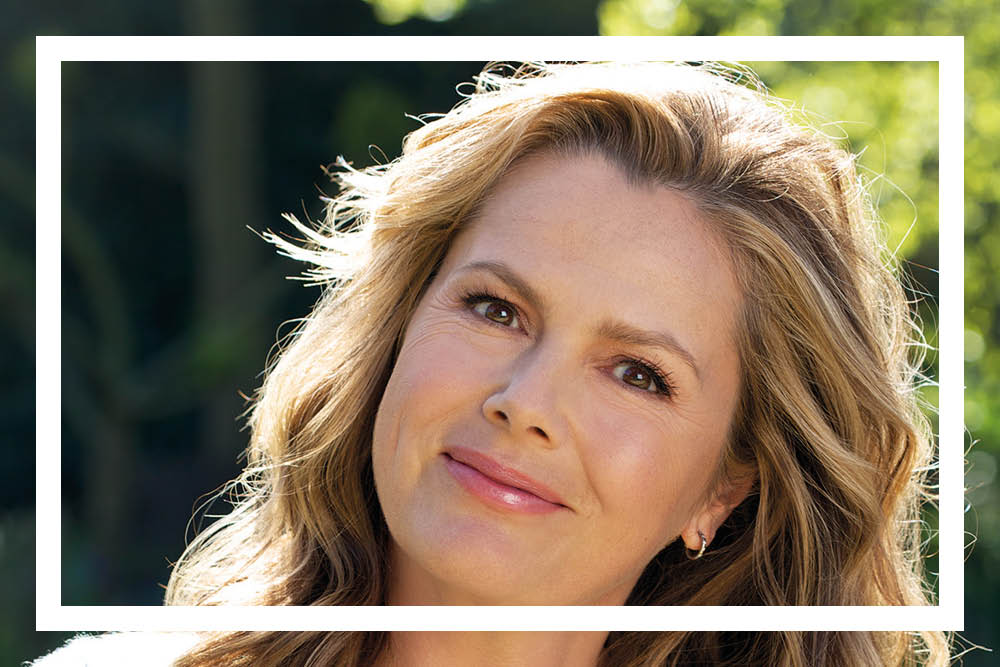Founder Focus: Liz Earle, the Queen of wellbeing

Liz Earle MBE is a hugely successful wellness entrepreneur and has been a respected voice within the wellbeing community for almost 30 years. In 1995, Liz co-founded the Liz Earle Beauty Co., which she later sold and is now owned by Walgreen Boots Alliance. Since then she has become a best-selling author with more than 30 published books covering a number of topics including natural nutrition, wellbeing, skincare and more.
Her latest entrepreneurial ventures include Liz Earle Wellbeing, a bi-monthly magazine focussing on all aspects of wellbeing, and Liz Earle Fair and Fine, an award-winning range of ethically sourced, Fairtrade gold botanical jewellery.
We sat down with the savvy business woman to find out how she built her brand.
What was your eureka moment?
When I was in my early twenties and realised I could improve my own eczema-prone skin by changing what I ate. That was a lightbulb moment for me and I’ve written and researched the link between looking good and eating well ever since.
What was your elevator pitch?
I’ve built my brands by being a trusted voice in the world of wellbeing for over 30 years, with ways to look good, feel good and do some good along the way.
How did you test your idea?
I have always created things that I personally find useful and valuable. If it works for me, then it follows that other mid-life women will find these helpful and inspiring too. Whether it’s a magazine issue, an ebook or a podcast, if I genuinely love it and find it fascinating/uplifting/interesting, then others will do too. Everything has to pass the “so what” test. I don’t want anyone to read my work, watch a broadcast or tune in to a podcast and be left thinking “so what’. It has to work much harder than that, always.
What advice would you give someone thinking of starting a business on their own?
Trust your gut. I’ve learnt the importance of listening to my gut instinct, but also sleeping on big decisions – I often say to my team: ‘if it has to be now, it has to be no’, because I need time to process it and I will always take great care to review my initial gut instinct on something and rationalise it with an overnight decision.”
Do you have a mentor or are you one?
I don’t have one mentor, I’ve been lucky to have had lots of different mentors throughout my career. I have been involved with mentoring young brand founders through some brilliantly empowering charities, including The Princes’ Trust and Resurgo.
What is the book you would recommend that everyone reads and why?
How The Wise Decide: The Lessons of 21 Extraordinary Leaders by Aaron Sandoski and Bryn Zeckhauser. This is one of the best business-related books I’ve read. The book reminded me that the principles of good business remain the same, whatever the scale. This is important for SMEs to remember: produce a great product, deliver it with excellent service and build a culture of loyalty and respect – both internally with your own team and externally with your customers.
What is the most worthwhile investment that you have made?
One of the things that I have learnt to prioritise over the years, is sleep. I used to think that sleep was a necessary evil that you needed to get through, as it wasted a lot of time where you could be being productive. Whereas looking back now, I realise I should have spent more time prioritising my sleep. It is so essential in helping to reduce stress levels, it’s very important for hormone balancing and gut health, which are all involved in optimising immunity and energy levels.
What one failure are you glad you experienced?
Gut instinct is an extraordinarily important thing for business – I’ve ignored my gut instinct at times when I shouldn’t have done. I hired somebody once, who on paper looked brilliant – it was a time when I needed to fill this slot. But there was just something that was nagging me in the back of my mind and my first impression just wasn’t great. I overrode those gut instinct feelings and it turned out to be a mistake. So I don’t do that anymore, I listen to my gut. The reason why we have expressions like ‘butterflies in our tummy’ or ‘gut instinct’, is because our gut can tell us things before our brain has had the time to process it.
What’s your plan B?
I’ve got several plan Bs up my sleeve – you have to as an entrepreneur – but I’m not going to reveal them right now while I’m fully committed to plan A!
What piece of industry advice do you often hear that you disagree with and why?
Print is dead. No – print is thriving. My Liz Earle Wellbeing magazine is bucking the trend and is 30% up year on year. If you get the product right and invest in quality content, beautifully produced, readers will value it.
As a business owner who has managed thousands of employees, what steps do you take to ensure that the workplace is somewhere that employees can be happy and thrive in?
Whether you’re leading a multi-national organisation or a small start-up, your employees are the most valuable asset. Leaders who support and enable a wellbeing-focused workplace can enjoy a more productive and profitable business. It’s often been said that if you look after your people, they will look after your customers, which drives your bottom line. But it’s also important for business leaders to note that you can’t look after your employees – or your business – if you don’t look after yourself. Leading by example and embedding good wellbeing habits in the workplace is incredibly important. In small businesses leaders are often more visible among their team and can create a positive environment that helps their people thrive.
Creating a workplace where employees can be happy and thrive is incredibly important to me, which is why I recently partnered with health insurance brand AXA PPP Healthcare for The Growth Leader Series to discuss the importance of investing in health and wellbeing at work. The series explored how investing in wellbeing and adopting a growth mindset can foster improvement, creativity and performance within business. You can listen to the podcast by clicking here.
What advice would you give to business owners when it comes to ‘taking care’ of their employees?
Wellbeing is a fundamental business asset. The strength of a company really can be measured by the strength of its people. Promoting wellness helps to make the workplace a happier environment.
Part of that is creating a flexible working environment – I’m very much in favour of flexi working. I don’t want everyone to turn up at 9am, having slogged into the studio after a really terrible commute, with cancelled trains etc. If you need to work from home or if that’s better for you, then I’m really happy for people to do that. My belief is that if you trust someone enough to work for you and be paying them, then you need to trust them to have flexible working.
Having a great space that people want to turn up to work in is also really important. We have initiatives like ‘Wellbeing Wednesdays’ at Liz Earle Wellbeing Magazine – where we have a Pilates instructor that comes in and we all get our leggings on and have a good stretch together. This is followed by a bring and share lunch, which is a really great way to get to know your team. I find that people bond and communicate really well over food.
Talk us through your morning routine?
Exercise is so key for both body and brain but I find the day often crowds in, making it hard to find the time, so I’ve taken to heading out for a brisk walk or run first thing before the working day gets going. I’ve always had a pretty low maintenance morning routine and don’t eat breakfast as I prefer the intermittent fasting principle of 12-15 hours between last mouthful in the evening and first mouthful the following day. One significant change I’ve made in recent years though is the introduction of kefir – a live super-yoghurt drink jam-packed with powerfully beneficial probiotics which I now have mid-morning. I make it myself using fresh live kefir grains and organic whole milk – although you can use coconut milk, coconut water or any other nut ‘milks’.








